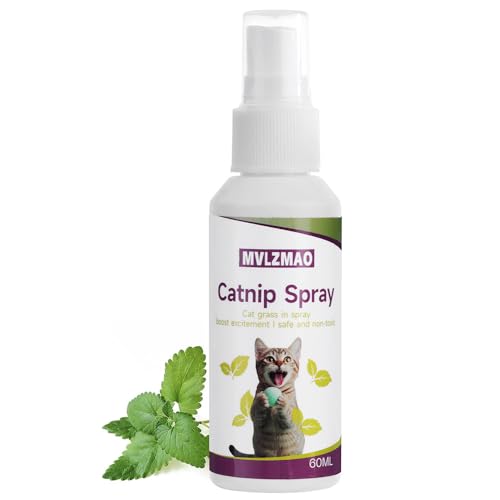Understanding Cat Spray
Understanding Cat Spray
If you’re a cat lover, you’ll probably be familiar with the distinct and pungent smell of cat spray. It’s not something that any cat owner wants to experience, but understanding what cat spray smells like can help you identify and address the issue.
Cat spray has a strong odor that is often described as musky, sharp, or even ammonia-like. It’s important to note that cat spray is different from regular urine. While both can have an unpleasant odor, cat spray is typically more potent and has a distinct odor that lingers.
One way to understand cat spray better is to know why cats spray in the first place. Cats spray as a form of communication, typically to mark their territory. This behavior is more commonly seen in unneutered male cats, but female cats and neutered males can also spray in certain situations.
When a cat sprays, they release a special pheromone through their urine that tells other cats, “This is my space.” It’s their way of leaving a message for other felines. In addition to the strong smell, cat spray can also leave behind visible marks, like vertical streaks on walls or furniture.
So, if you come across a strong, pungent odor in your home, it’s worth investigating if your cat has sprayed. Understanding the smell and its purpose can help you take the necessary steps to address the issue and prevent it from happening again.
Take note that if your cat suddenly starts spraying, it could be a sign of stress or health issues. In such cases, it’s beneficial to consult with a veterinarian to rule out any underlying problems.
In the next section, we’ll delve deeper into the factors that can contribute to cat spraying and explore practical solutions to help prevent and manage this behavior, ensuring a harmonious living environment with your beloved feline companion. Keep reading to uncover the secrets of tackling cat spray odor and maintaining a happy home.
Remember, understanding cat spray is the first step towards finding a resolution. Now, let’s explore the reasons behind cat spraying and discover ways to address this issue.
What Causes Cats to Spray?
As a cat lover, you may have wondered why cats spray. It’s essential to understand what causes this behavior so that you can address it effectively. Here’s what you need to know:
1. Territorial Marking
Cats are territorial creatures, and spraying is one of the ways they communicate and mark their territory. When a cat sprays, they are leaving behind a scent that signals to other cats, “This is mine.” It’s their way of claiming their space and asserting dominance.
2. Unneutered/Unspayed Cats
Unneutered male cats and unspayed female cats are more likely to spray. Hormones play a significant role in this behavior. Unneutered males will spray to attract females, while unspayed females may spray to advertise their availability to potential mates.
3. Stress and Anxiety
Stress and anxiety can trigger spraying behavior in cats. Changes in their environment, such as moving to a new home or the introduction of a new pet, can cause them to feel uneasy. Spraying becomes a way for them to cope with the stress and mark their territory.
4. Medical Issues
Sometimes, spraying can be a sign of an underlying medical issue. Urinary tract infections, bladder stones, or other health problems can lead to inappropriate urination, which may include spraying. If your cat suddenly starts spraying or exhibits other unusual behaviors, it’s best to consult a veterinarian to rule out any medical causes.
5. Social Factors
Cats in multi-cat households may spray as a form of social interaction or to establish a hierarchy within the group. Introducing cats properly and providing enough resources and space for each cat can help minimize spraying due to social factors.
Understanding the reasons behind your cat’s spraying behavior is the first step towards addressing the issue effectively. In the next section, we’ll discuss practical solutions to prevent and manage cat spraying.
Remember, with patience and the right approach, you can help your beloved feline friend overcome this behavior.
The Scent of Cat Spray
As a cat lover, you’ve probably wondered: what exactly does cat spray smell like? Well, let’s dive into this topic and unravel the mystery together.
1. It’s pungent and distinct: Cat spray has a strong and unmistakable odor. It’s not like the usual litter box smell or a regular urine scent. Believe it or not, it’s even more pungent and intense.
2. A cocktail of chemicals: The odor of cat spray is a result of a combination of chemicals, including certain volatile compounds. These compounds act as pheromones, which are chemical messengers that cats use for communication. So, when your cat sprays, they are leaving behind a fragrant message for other cats.
3. A blend of musk and ammonia: The scent of cat spray is often described as musky and ammonia-like. The musky undertone comes from the presence of testosterone in males’ spray, while the ammonia-like smell is due to the breakdown of urea in urine.
4. Can vary in intensity: The strength of the odor can vary depending on factors such as the individual cat, the amount of spray, and the location where it was sprayed. The aroma can range from mildly offensive to downright overpowering.
5. Can linger for ages: One thing is for sure – the scent of cat spray can linger in the air and cling to surfaces for quite a while. Even after you’ve cleaned it up, the smell may still persist. That’s why it’s crucial to act promptly when tackling this issue.
Understanding what cat spray smells like is essential, especially if you’re dealing with a spraying problem. By recognizing the scent and the underlying reasons behind it, you can take the necessary steps to prevent or address this behavior.
Describing the Odor
When it comes to the smell of cat spray, it’s definitely something you’ll want to be familiar with as a cat lover. While it might not be the sweetest scent, understanding what cat spray smells like is important for addressing and preventing this behavior. Here’s a closer look at the odor:
- Pungent: Cat spray is known for having a strong and pungent smell. It’s not something you can easily ignore once you encounter it. The scent is distinct and can be quite overwhelming, especially if it’s concentrated in a small area.
- Musk and Ammonia: The odor of cat spray is a unique combination of musk and ammonia. It has a sharp, tangy smell that can be quite offensive. This distinctive aroma is what sets cat spray apart from other unpleasant odors.
- Variation in Strength: The strength of the odor can vary from cat to cat. Some cats may produce a more potent spray, while others might have a milder smell. Keep in mind that unneutered males and unspayed females tend to have a stronger odor due to hormonal factors.
- Long-Lasting: One thing to note about cat spray is that it can linger for a long time. Even if you’ve cleaned the affected area, traces of the scent may still remain. The longer the spray sits, the harder it becomes to get rid of the smell completely.
Remember, it’s important to address the underlying reasons behind cat spraying rather than simply mask the odor. By understanding what cat spray smells like and taking appropriate steps to prevent it, you can create a more pleasant environment for both you and your feline friend.
Dealing with Cat Spray Odor
You love your furry feline friend, but let’s be honest – the smell of cat spray is not something you want to live with. Whether you’re a longtime cat lover or a new cat parent, dealing with cat spray odor can be quite a challenge. But don’t worry, we’ve got you covered. Here are some tips to help you tackle that distinct and pungent smell:
1. Act quickly: The sooner you address the cat spray odor, the better. Don’t wait for it to fade on its own, as it can linger for quite some time. Grab your cleaning supplies and get to work.
2. Find the source: Locate the areas where your cat has sprayed. Look for telltale signs like wet spots, stains, or an intense smell. Identifying the source is crucial for effective odor removal.
3. Clean and neutralize: When it comes to cleaning cat spray, it’s essential to use the right products. Avoid using bleach or ammonia-based cleaners, as these can actually intensify the scent. Instead, opt for enzyme-based cleaners specifically designed to break down the odor-causing molecules.
4. Remove the odor: After cleaning the affected areas, it’s important to neutralize the odor. You can use white vinegar or baking soda mixed with water to help eliminate the smell. These natural remedies are safe for both you and your cat.
5. Consider professional help: If the cat spray odor persists despite your best efforts, don’t hesitate to reach out for professional assistance. There are specialized services that specialize in odor removal and can help combat those stubborn scents.
6. Prevent future spraying: Understanding the reasons behind cat spraying can help in preventing it from happening again. Make sure your cat feels secure and provide them with appropriate outlets for their natural behaviors, such as scratching posts and toys. Neutering or spaying your cat can also significantly reduce the chances of spraying.
Conclusion
Now that you have a better understanding of what cat spray smells like and why cats engage in this behavior, you can take the necessary steps to address the issue. Remember, cat spraying is a natural behavior that cats use to communicate and mark their territory. By acting quickly and finding the source of the odor, you can effectively remove the scent and prevent it from lingering in your home.
Using the right cleaning products and neutralizing the odor is crucial in eliminating the smell. If you find that the odor persists or the spraying behavior continues, it may be beneficial to seek professional help. They can provide additional guidance and solutions tailored to your specific situation.
Preventing future spraying is also important. Providing appropriate outlets for your cat’s natural behaviors, such as scratching posts and interactive toys, can help redirect their energy. Additionally, considering neutering or spaying your cat can help reduce the likelihood of spraying.
By following these tips and understanding the underlying reasons behind cat spraying, you can create a harmonious environment for both you and your feline friend.
Frequently Asked Questions
Q: Why do cats spray?
A: Cats spray to mark their territory and communicate with other cats. Hormonal factors, such as being unneutered or unspayed, can also contribute to spraying. Additionally, stress and anxiety can trigger this behavior.
Q: How can I get rid of cat spray odor?
A: Act quickly and find the source of the odor. Use a cleaning product specifically designed to remove cat spray and neutralize the odor. Consider professional help if the odor persists. To prevent future spraying, provide outlets for natural behaviors and consider spaying or neutering your cat.

















